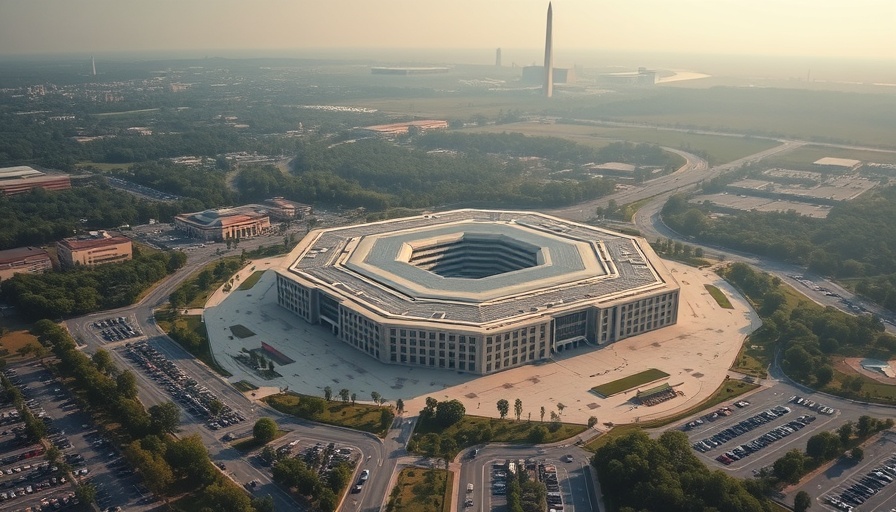
The Shift in Warfare: More Than Just Military Might
In 1999, two Chinese colonels released a treatise titled Unrestricted Warfare that revolutionized the understanding of modern conflict. Their strategy proposed using every instrument of national power—from economics to public sentiment—to weaken adversaries without direct confrontation. Fast forward to today, and their predictions have manifested as China has adeptly weaponized various global dimensions such as capital markets and technological advancements to expand its influence. The question now arises: how can the United States compete against this multifaceted threat without resorting to the same strategies that define its adversaries?
The American Dilemma: A Lack of Cohesion
The U.S. military and policy apparatus continues to compartmentalize its strategies, focusing separately on defense, diplomacy, and economic measures. However, as the People's Republic of China (PRC) seamlessly integrates these areas into their strategies, the U.S. finds itself at a disadvantage. Instead of mirroring China’s methods—which include suppressing information and blurring lines between civilian and military operations—America must rethink its approach to competition and define its own version of unrestricted warfare.
Defining Unrestricted Competition: The American Way
To successfully engage in unrestricted warfare, America can leverage its unique strengths: innovation, adaptability, and a values-driven approach. An American strategy could include:
- Offensive Counterintelligence: Shift from a reactive to a proactive mindset by disrupting foreign intelligence operations.
- Strategic Influence Operations: Position America as a leader in narrative shaping in global disputes, especially against narratives pushed by the PRC.
- Economic Statecraft: Utilize the dollar's power to implement stringent standards for foreign influence and investment screening.
These measures can ensure that the U.S. stands on solid ground without resorting to authoritarian tactics that undermine its core values.
Practical Implications for Military Families
For active duty service members and their families, understanding the implications of this strategic environment is crucial. As military careers often hinge on the nation's geopolitical standing, being informed about these dynamics can help you support your loved ones during transitions. Many service members will seek careers in civilian life, transitioning from active duty to a diversified workforce where their military training is essential. Resources like AristaValor offer pathways for veterans transitioning into civilian roles, helping them capitalize on their military experience, thus contributing to America’s adaptive competitive strategy.
Lessons from Valor: Building Resilience
Military families embody resilience, a trait necessary in navigating the complexities of modern warfare and its implications. The stories of valor, whether from soldiers in combat or families managing the home front, highlight the courage that binds communities together. Sharing these narratives strengthens connections and fosters a sense of shared purpose, reminding us of the importance of leadership and community support in difficult times.
Moving Forward: Your Role in the Larger Picture
Ultimately, every military family can play a part in shaping America’s approach to unarmed conflict. By advocating for transparent communication, engaging in community programs like Valor in Action, and supporting local veteran initiatives, you can contribute to a larger narrative of patriotism and innovation. Together, we can redefine what it means to lead in a global era rife with challenges while upholding the values we cherish.
As we adapt to an evolving landscape of warfare, each of us has a role. Stay informed, support your loved ones, and engage with your community to draw strength from one another as we navigate these complex times. The future of military and civilian life is interconnected, and together, we can forge a path of success.
 Add Row
Add Row  Add
Add 




Write A Comment